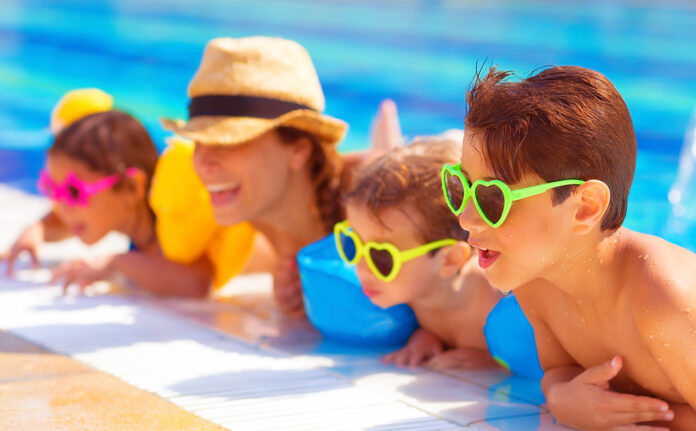SURVIVING SUMMER Staying healthy on your holiday in Spain. With the summer season in full swing, families from around the world will be arriving across Spain to enjoy the plentiful sun, sand, and sea.
The fabulous weather, the laidback lifestyle, and the healthy Mediterranean climate are just some of the reasons people flock to the Costa Blanca at this time of year.
But it's important to make sure you take good care of yourself and your family while you're here, and to understand that fun in the sun comes with its own set of challenges.
Here's our guide to staying healthy on your holiday in Spain, the most common health complaints, how to prevent them, and how to treat them.
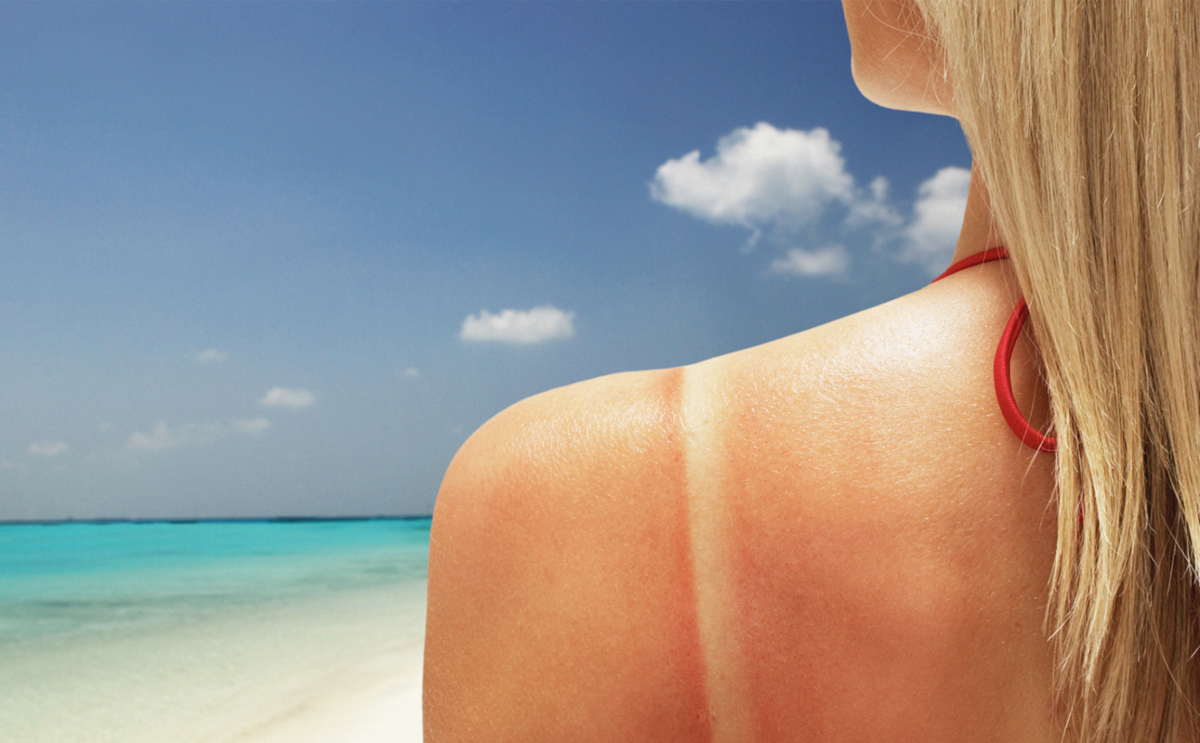
Reducing the risk of sunburn
The hottest part of the day on the Costa Blanca occurs between 2.00 pm and 6.00 pm. For people with sensitive skin, just being in direct sunlight unprotected for 20 minutes is enough to cause serious sunburn – less for a baby or young child.
Always apply a high-factor sun cream and wear a sunhat and sunglasses with UV protection which cover a large percentage of the face.
Children should always use a factor 50 sun cream, regardless of their skin tone. If you're planning a dip in the inviting Mediterranean waters or a swimming pool, use a water-resistant sun cream and reapply regularly throughout the day.
Ensure that young children are as covered as possible when at the beach or water park. SPF and UV protective swimwear is widely available online, and you may want to consider specialised clothing for adults in your party.
If you do suffer from sunburn this summer take a cool shower to reduce the redness and burning sensation on the skin, gently pressing the skin dry with a towel.
Sleep uncovered overnight with a fan on to avoid agitating sore and inflamed skin, and try to avoid using air conditioning. Drink plenty of water and avoid dehydrating fluids such as caffeine-based drinks and alcohol.
Apply Aloe Vera Gel liberally to affected areas and keep the bottle in the fridge. The gel will effectively cool and rehydrate the skin and calm heat rash, reducing the risk of prickly heat.
You'll find the gel available at all pharmacies, and the Spanish supermarket Mercadona offers an excellent Aloe Vera Gel available in stores locally.
Stay indoors in a cool environment for 24 hours to help the skin recover and avoid body spray or deodorants. Once the sunburn is no longer sore, apply rehydrating body cream overnight to repair the damaged skin.
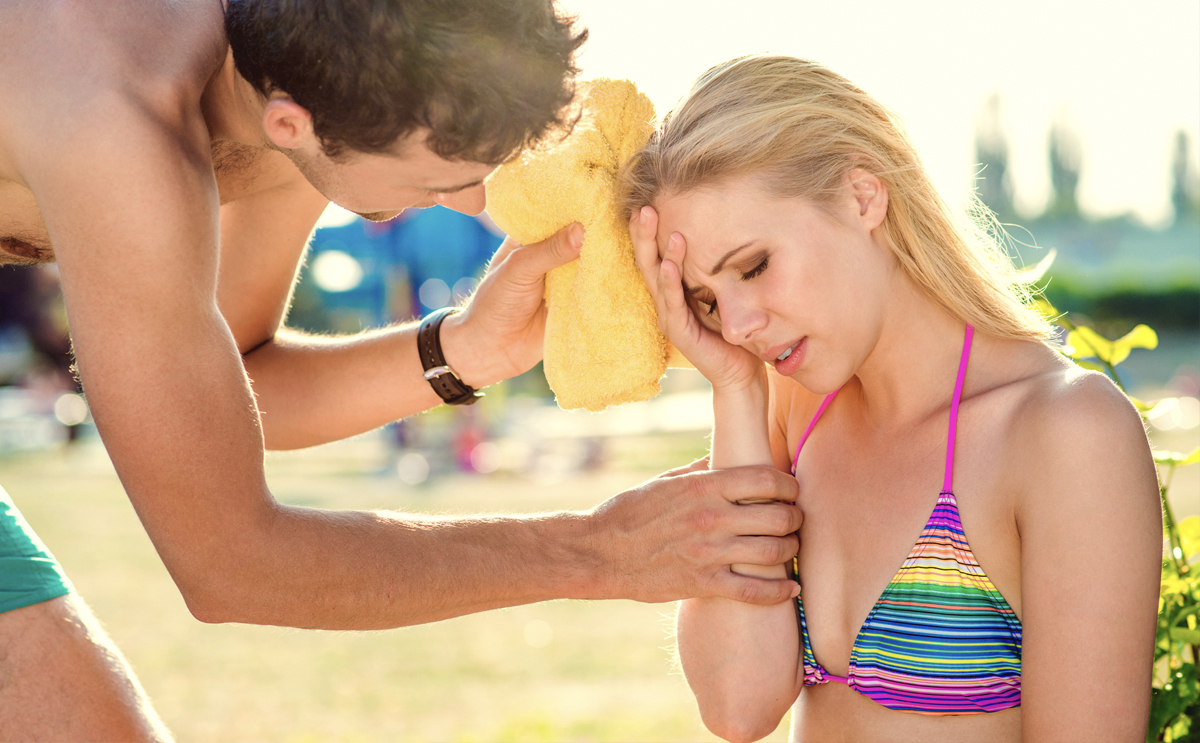
Avoiding heatstroke
Heatstroke is not only unpleasant but it can cause death in the very young or elderly in extreme cases.
Wear lightweight, pale-coloured clothes, and avoid fabrics containing a high percentage of polyester or Lycra, as these fabrics trap the heat close to your skin and stop the skin from breathing.
Drink plenty of water to stay hydrated and eat fruits with a high water content such as watermelon.
Limit the amount of time spent directly in the sun and always wear a hat which protects both the top of the head and the back of the neck. Placing a wet towel around your neck will help to keep your body temperature low.
Carry a water spray bottle for your face to provide a mist that will cool you down.
Relax and take a siesta during the hottest part of the day and try to plan activities for during the morning or early evening.
If you are unlucky enough to suffer from heatstroke stay inside in a cool dark room and drink plenty of water. Take a cold shower to help reduce your body temperature.
If you feel nauseous or suffer from diarrhoea consider drinking flat cola. This helps replace lost salts and electrolytes. Basic analgesia such as paracetamol will relieve headache symptoms.
Young children suffering from severe heatstroke may become floppy and sleepy, and the elderly may become confused and disorientated. In these circumstances, seek medical assistance immediately at your closest medical centre, or call 112 for emergency attention.
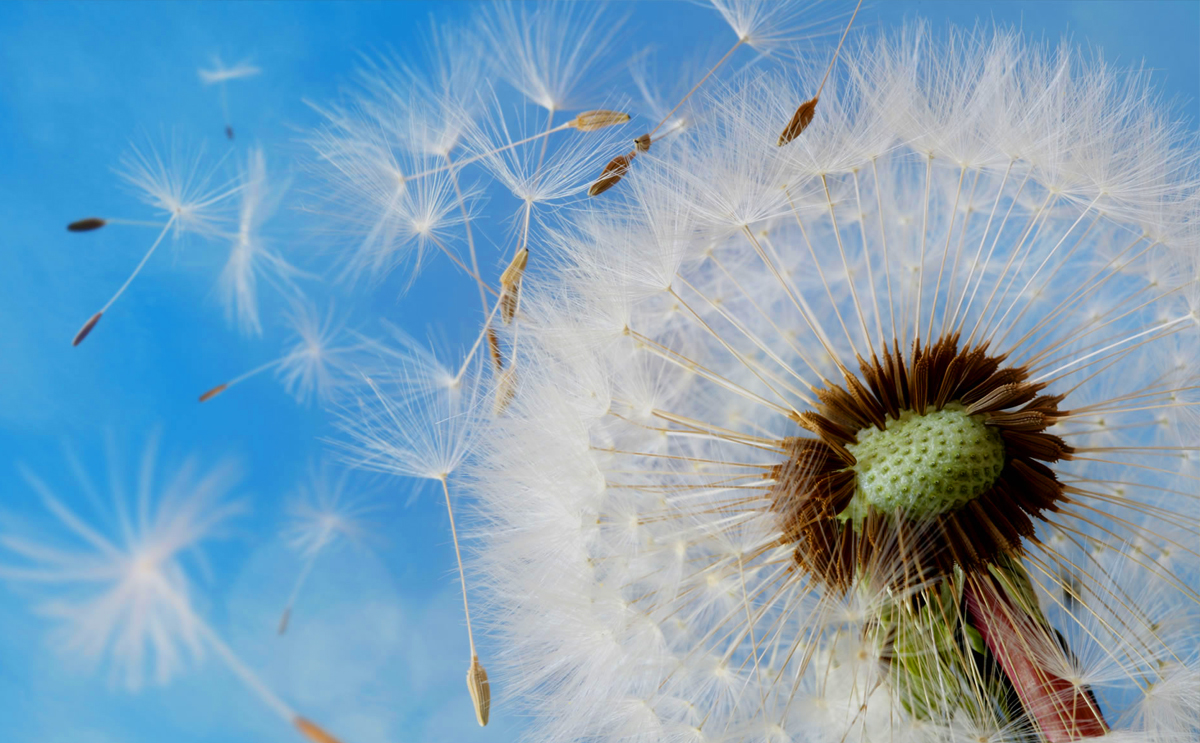
Combatting the effects of hay fever
Hay fever is a common ailment in Spain, and you might find you suffer symptoms during your summer holiday even if you don't normally at home.
Seasonal weather combined with the heat of summer can cause moderate to high pollen levels. There are types of pollen on the Orihuela Costa that you might not be so accustomed to, such as the pollen produced by the local flora at many of the beautiful golf courses here.
You may experience symptoms similar to a common cold, including a runny nose, frequent sneezing, irritated eyes, or a sore throat.
Hay fever is likely to leave you feeling lethargic and interrupt your normal sleep pattern. In more severe cases, you may develop facial pain, loss of smell, headaches and a hot sweat.
If you suffer from hay fever during your holiday consider taking a daily morning dose of non-drowsy antihistamines, such as loratadine. If symptoms persist an additional evening dose might help, and you can purchase the medication from any local pharmacy.
If your accommodation offers air conditioning make sure to keep the windows closed when you are indoors.
If you continue to suffer from hay fever or your symptoms persist, use Clarityn eye drops or a nasal spray such as Beconase which contains a mild steroid to help reduce soreness.
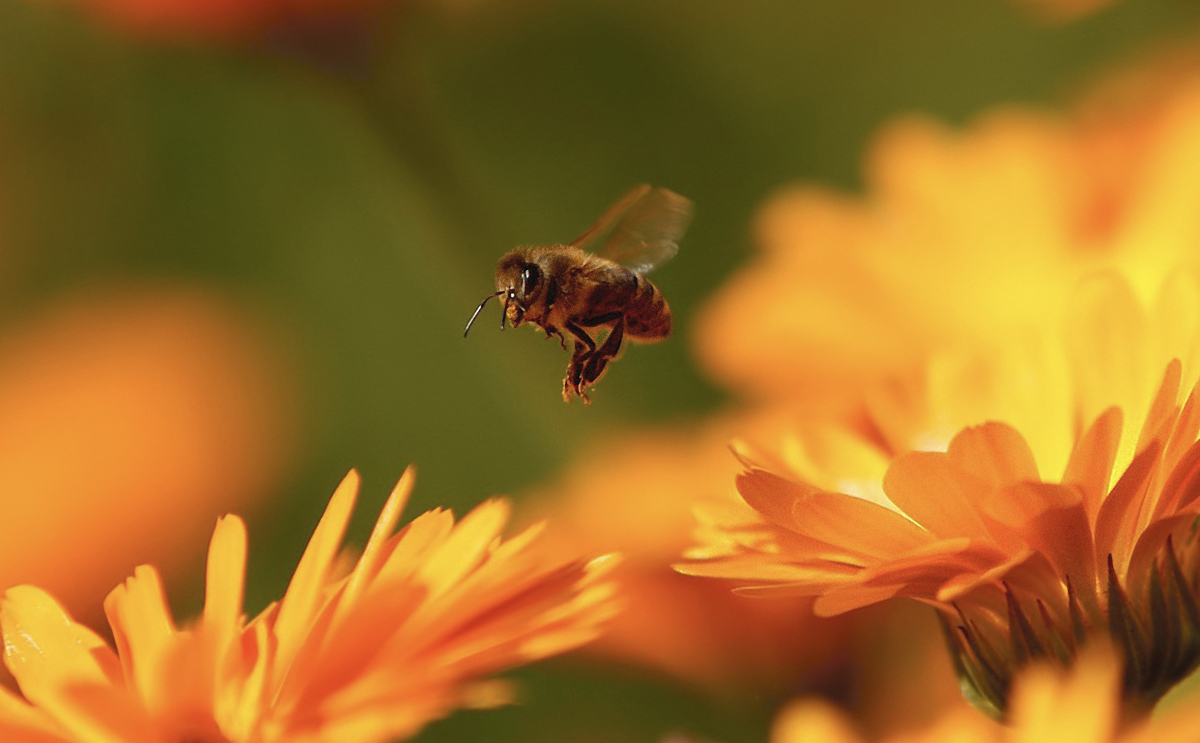
Dealing with painful stings and bites
The bugs you're likely to encounter in Spain aren't that much different to those you'll be accustomed to at home. But there is a variety of insects that can bite and sting, including ants, mosquitoes, wasps and bees.
You will want to enjoy visits to the beach, the wonderful natural parks and al fresco dining while you're here in Spain. Fortunately, there are things you can do to prevent falling foul to insects.
Light a citronella candle to keep flying insects at bay whilst eating outdoors, and never walk around outside with bare feet.
Use an insect repellent, such as a cream or roll-on, or purchase wristbands containing citronella to repel biting insects. Spraying repellent around the windows in the bedrooms can help minimise mosquito bites overnight.
AccuWeather's handy forecast shows the current level of expected mosquito activity in the local area.
If you find ants inside your accommodation, use a crawling insect spray around the doors and windows to help prevent them from coming in.
Keep food covered – inside and outdoors. If you see wasps or bees near you try to stay calm and move away from them. Most insects only sting you if they feel threatened.
If someone in your party does get bitten or stung, remove any sting as soon as possible by scraping the skin with a fingernail or a credit card. Never attempt to squeeze a sting out of the skin as you may push the sting further into the tissue.
Clean the affected area with an antiseptic liquid or soap and water, and apply an ice pack to reduce swelling and pain.
Apply hydrocortisone cream or an Afterbite stick to the bite or sting, and take basic analgesia, such as paracetamol or ibuprofen to help reduce pain and inflammation.
Do not rub or scratch the area as this will increase histamine production and discomfort. Taking a regular antihistamine tablet will reduce the size of the bite and the desire to itch.
If you or a family member suffers a severe allergic reaction, such as anaphylactic shock resulting from a bite or sting, seek emergency medical attention from the local medical centre or call 112.
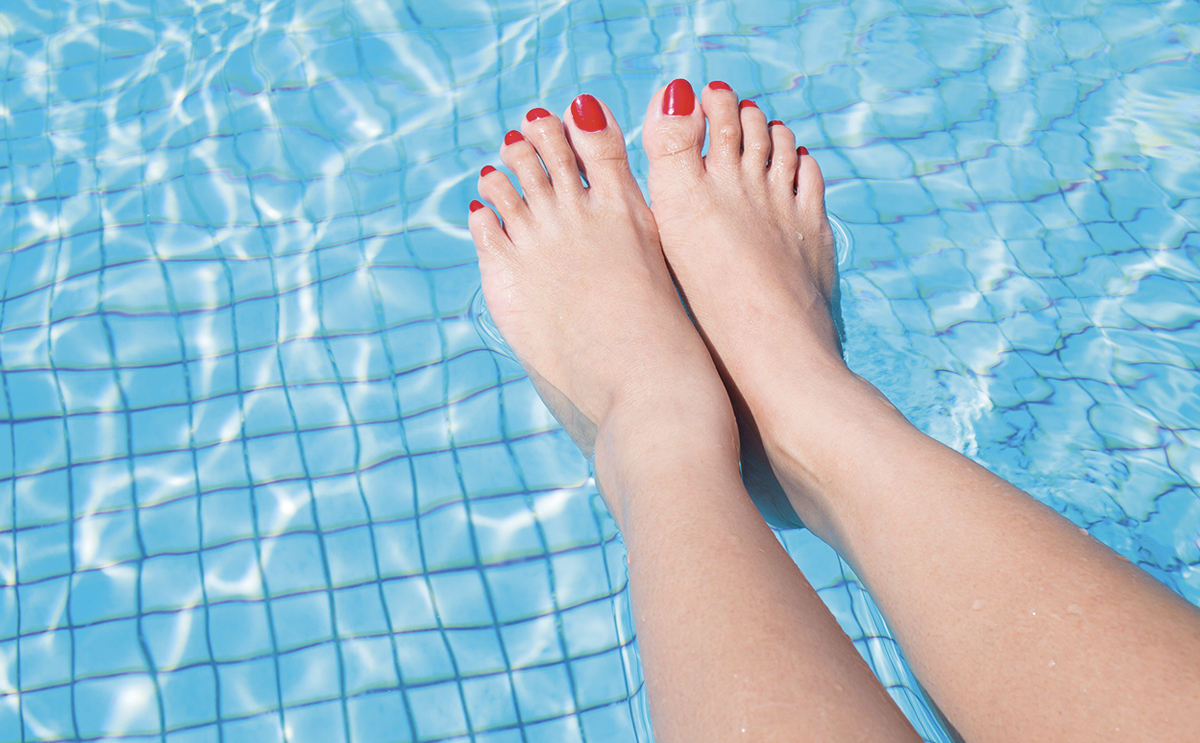
Preventing Athlete's Foot Infection
The warm weather in Spain means you're more likely to suffer from Athlete's Foot during your stay. To help prevent the infection putting a dampener on your holiday, wear shoes, flip-flops or sandals when walking around the pool area.
Keep your feet sweat-free by wearing footwear that allows air to circulate. Avoid shoes made from rubber or heavy synthetic materials.
Socks made from natural fabric such as cotton, or socks with a special absorbent layer are ideal, and can often be found in sports shops. Don't be tempted to wear socks again if they get or feel wet.
Wash your feet thoroughly every day with soap and take care to dry them fully, especially between your toes. Try to have more than one pair of footwear to use so you can allow shoes time to dry and air.
An antifungal shoe spray will help reduce the possibility of spores forming. Do not share towels, socks or footwear with anyone else, and change your towels every two days.
Symptoms to watch out for include itching and burning sensations on the soles of your feet and between your toes, or cracked, flaky and sore skin.
The application of an antifungal cream (available from all pharmacies) to the affected areas of the foot is the most effective way to treat an infection, paying special attention to the area between your toes.
Consider using a cooling and refreshing foot cream on your soles and ankles to help reduce swelling and tenderness.
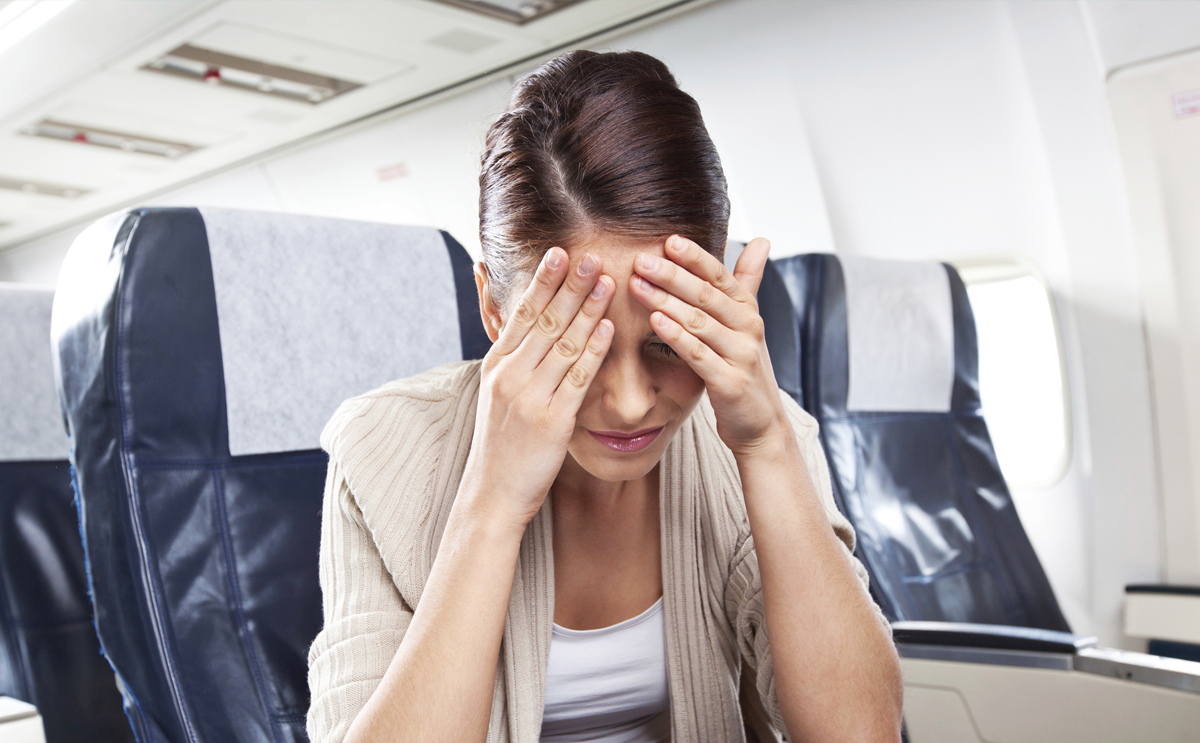
Coping with travel sickness
Travel sickness can affect people of all ages and it's never a good start to any holiday.
Children aged between 2 and 12 years, pregnant women, and those who suffer from migraines are the most likely to be affected.
Travel sickness most often occurs because your eyes are unable to see what your body is feeling, which causes conflicting messages that confuse your brain and in turn make you feel sick, or cause sufferers to be physically sick.
To help prevent travel sickness only eat a small meal of plain food before you start your journey, avoiding fatty, greasy or heavy meals.
If you're travelling by aircraft, limit the amount you move around the cabin and pick a window seat when you book your flights that offers a clear view outside. Music can provide a helpful distraction, and don't read or spend all your time looking at your phone.
Peppermint or ginger flavours are known to reduce nausea, so always have some suitable sweets with you.
Antiemetic medications such as Stugeron or Joy-rides for children, are known to offer effective relief from travel sickness.
You can also use acupressure wristbands to help control and prevent travel sickness. They work by interrupting the messages sent from the brain to the stomach which causes the feeling of sickness.
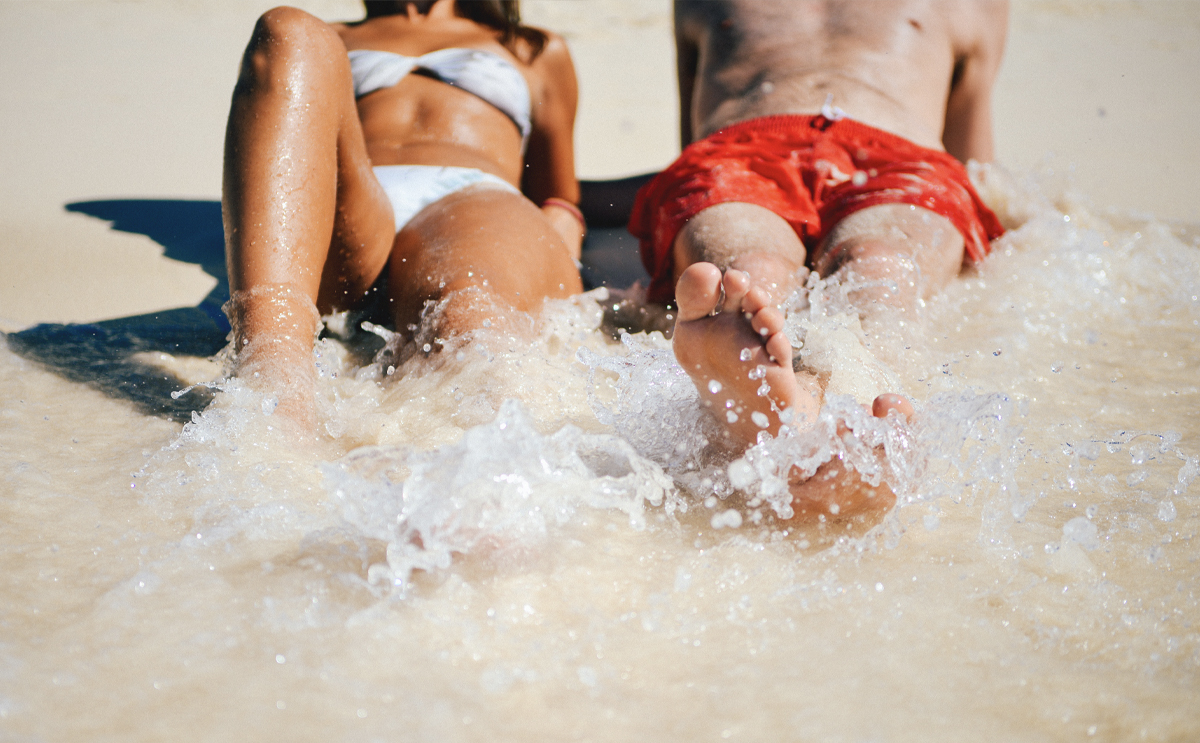
Common holiday health problems in Orihuela Costa
This article has been produced for LaZenia.com by a fully qualified medical professional. However, the best advice is always to seek assistance from specialist practitioners or a local pharmacy here in Spain.
Pharmacists will be able to recommend suitable products based on your age and medical conditions.
If you need medication for someone in your party, inform the pharmacist of any pre-existing medical conditions or if any other medication is currently taken. This may affect the medication that the pharmacist recommends.
In the case of an emergency do not hesitate to call 112.
Looking for holiday ideas and travel inspiration? Find out more about our favourite recommended things to do on the Orihuela Costa or join the La Zenia community Facebook group and find out what's going on in the local area.


